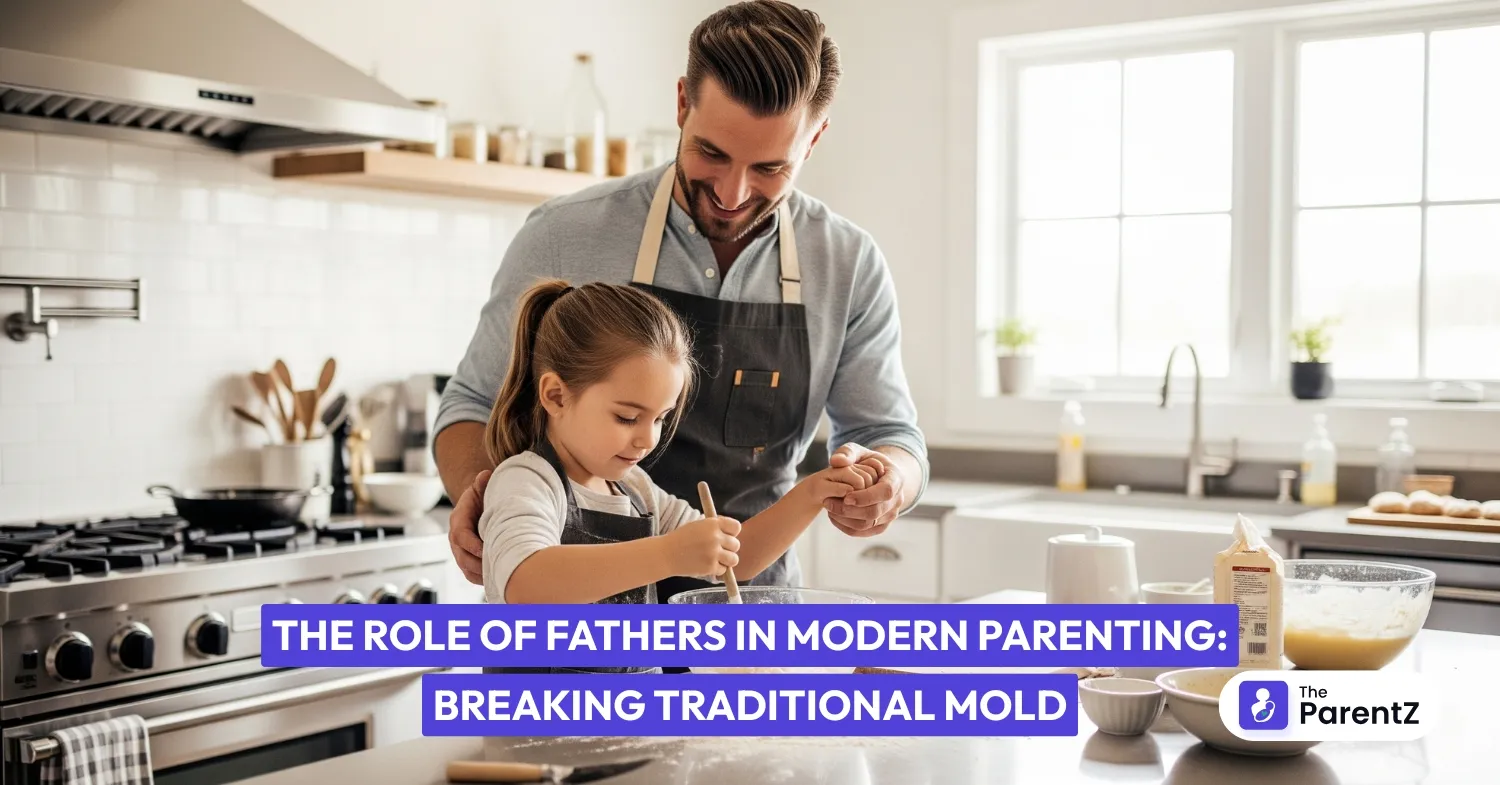Remember when dads were just the "fun parent" who showed up for bedtime stories and weekend games? Those days are long gone. Today's fathers are changing diapers at 3 AM, braiding hair before school, and having deep conversations about feelings with their kids.
The parenting dynamic has shifted dramatically, and fathers are no longer content sitting on the sidelines while moms handle the "real" parenting. This change isn't just good news for overwhelmed mothers; it's revolutionary for fathers, children, and families as a whole.
The Old Rules Don't Work Anymore
For decades, society painted fathers into a pretty narrow corner. Dad was the breadwinner, the disciplinarian, the guy who fixed things around the house. He came home from work, read the newspaper, and maybe helped with homework if mom was busy. Emotions? That was mom's department. Doctor visits, parent-teacher conferences, and playdates, all mom territory.
This traditional setup wasn't just limiting for mothers who carried the entire emotional load of parenting. It was devastating for fathers too. Think about it: these men were essentially told that their primary value to their children was their paycheck. They missed out on the daily moments that build deep connections, like the bedtime fears, the scraped knees, the proud moments over small victories.
Many fathers from older generations will tell you they feel like they barely knew their kids when they were young. They followed the script society handed them, only to realize later that they'd been robbed of some of the most meaningful experiences life has to offer.
The Damage of Old Stereotypes
These strict roles hurt everyone involved. Children grew up with incomplete relationships with their fathers, often seeing them as distant authority figures rather than nurturing guides. Boys learned that being a man meant being emotionally unavailable. Girls learned that only mothers could provide comfort and understanding.
Fathers themselves suffered from this arrangement. Many report feeling disconnected from their children, uncertain about their role beyond provider and occasional disciplinarian. They wanted to be more involved but didn't know how, or felt society's pressure to maintain that stoic, breadwinner image.
The stress on marriages was huge too. When one parent carries 90% of the parenting load while the other focuses solely on work, resentment builds. Mothers felt unsupported and overwhelmed. Fathers felt like outsiders in their own homes.
What Modern Fatherhood Actually Looks Like
Today's dads are writing a completely different story. They're present from day one, not just cutting the umbilical cord, but learning to swaddle, mastering the art of baby-wearing, and yes, becoming experts at decoding different types of cries.
Modern fathers are showing up to school plays, organizing playdates, and having those tough conversations about bullying, friendship, and growing up. They're coaching soccer teams, attending PTA meetings, and staying home with sick kids. They're learning that nurturing isn't a feminine trait, it's a human one.
This shift goes way beyond just helping out more around the house. Today's fathers are emotionally invested and available. They're comfortable being affectionate with their children, whether that means cuddling during movies, talking through big feelings, or simply being the safe space their kids need.
The Benefits Are Real and Measurable
Research consistently shows that children with actively involved fathers have better social skills, higher self-esteem, and fewer behavioral problems. They perform better academically and are more likely to have healthy relationships as adults. When fathers are nurturing and present, children learn that men can be trusted caregivers, which shapes their future relationships and parenting styles.
For fathers themselves, this deeper involvement brings incredible rewards. They report feeling more connected to their children, more confident in their parenting abilities, and more satisfied with family life overall. The bond formed through daily caregiving (not just weekend fun) creates relationships that last a lifetime.
Mothers benefit too. When parenting is truly shared, mothers experience less stress, better mental health, and more opportunities to pursue their own goals and interests. Marriages tend to be stronger when both partners feel supported in the parenting journey.
The Challenges Are Real Too
This transition isn't always smooth. Many workplaces still operate under the assumption that fathers don't need flexibility for family responsibilities. Some men face judgment from other men for being "too involved" in childcare. Others struggle with confidence, feeling like they're behind the curve on parenting skills that weren't traditionally expected of them.
There's also the challenge of unlearning generations of conditioning. Many fathers today are parenting differently than they were parented, which means figuring it out as they go along. It takes courage to break those traditional molds, especially when extended family or social circles might not understand or support the change.
Conclusion
The shift toward more involved fatherhood isn't about creating perfect parents or completely abandoning traditional gender roles overnight. It's about recognizing that children benefit when both parents are emotionally available, nurturing, and actively involved in daily life.
Modern families work best when they're built on partnership rather than fixed role assignments. When both parents can work, both can nurture, and both can be the comfort their children need; everyone wins.






Be the first one to comment on this story.